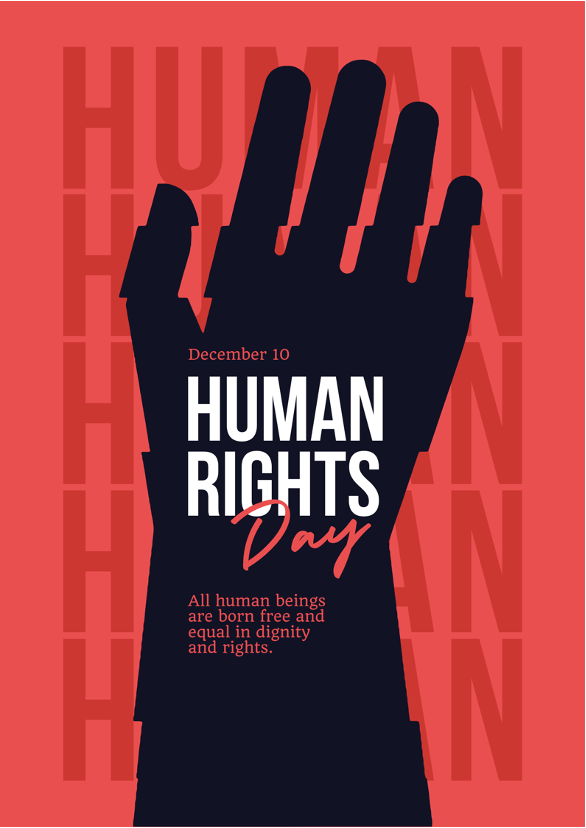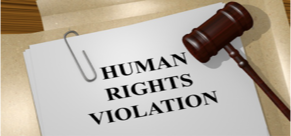Human Rights Violation
By Ahmad Awwad and Ali Gunduz

What are Human Rights Violations
 Human rights violations mean when people’s basic rights are ignored or taken away. These rights include things like the right to be treated fairly, the right to speak freely, the right to practice your religion, and the right to be safe from harm. When governments or powerful groups don’t respect these rights, it can lead to discrimination, abuse, and suffering for individuals or communities. It’s like when someone doesn’t let you play with your toys or doesn’t let you say what you want to say—it’s not fair, and it can hurt people.
Human rights violations mean when people’s basic rights are ignored or taken away. These rights include things like the right to be treated fairly, the right to speak freely, the right to practice your religion, and the right to be safe from harm. When governments or powerful groups don’t respect these rights, it can lead to discrimination, abuse, and suffering for individuals or communities. It’s like when someone doesn’t let you play with your toys or doesn’t let you say what you want to say—it’s not fair, and it can hurt people.
Types of Human Rights Violations
-
Freedom Violations: When people are not allowed to speak, express their opinions, or practice their religion freely.
-
Discrimination: Treating people unfairly because of their race, gender, religion, or other differences.
-
Violence: Hurting or harming others physically or mentally.
-
Injustice: When the legal system doesn’t treat everyone fairly or equally.
-
Poverty: Not having enough money or resources to live a decent life.
— 6. Forced Labor: Making people work against their will, often in terrible conditions.
-
Child Labor: Making children work instead of letting them go to school and enjoy their childhood.
-
Torture: Inflicting severe pain or suffering on someone as a punishment or to get information.
-
Slavery: Owning people as property and forcing them to work without pay or freedom.
-
Denial of Education: Not allowing people to go to school and learn, which limits their opportunities and future.
Rights of Women and Minorities Violations:
-
Discrimination: Women and minority groups often face discrimination in access to education, employment, healthcare, and other basic services. Discriminatory practices can limit their opportunities for advancement and equality.
-
Violence: Women and minorities are disproportionately affected by various forms of violence, including domestic violence, sexual assault, hate crimes, and honor killings. Such violence not only causes physical harm but also perpetuates fear and insecurity within these communities.
-
Limited Political Participation: Women and minorities are often underrepresented in political processes and decision-making bodies. This lack of representation hinders their ability to advocate for their rights and interests effectively.
— 4. Legal and Social Restrictions: Laws and societal norms may impose restrictions on the rights of women and minority groups, such as limitations on mobility, dress codes, or access to legal recourse. These restrictions further marginalize these communities and perpetuate inequality.
-
Economic Disparities: Women and minority groups frequently face economic disparities, including lower wages, limited access to credit and financial resources, and barriers to entrepreneurship. These disparities contribute to their overall socio-economic marginalization.
-
Cultural and Religious Practices: Some cultural and religious practices may perpetuate discrimination and inequality against women and minority groups, such as forced marriage, female genital mutilation, or caste-based discrimination.
Cultural Rights Violations:
Cultural rights protect the rights for each person, individually and in community with others, as well as groups of people, to develop and express their humanity, their world view and the meanings they give to their existence and their development through, inter alia, values, beliefs, convictions, languages, knowledge .
Economic and Social Rights Violations
-
Poverty: Millions of people worldwide struggle to meet their basic needs due to poverty. Lack of access to adequate food, shelter, healthcare, and education are all forms of economic and social rights violations.
-
Discrimination: Discrimination based on race, ethnicity, gender, religion, disability, or other factors can lead to economic and social marginalization. This can manifest in unequal access to employment, education, housing, and healthcare.
-
Labor Exploitation: Exploitative labor practices, including forced labor, child labor, and unfair wages, violate individuals’ economic rights. Many workers are subjected to unsafe working conditions, long hours, and low pay, denying them the opportunity to live with dignity.
— 4. Lack of Healthcare: Access to affordable and quality healthcare is a fundamental human right. However, many individuals, particularly in low-income countries or marginalized communities, lack access to essential healthcare services, medications, and sanitation, leading to preventable illnesses and deaths.
-
Housing Rights Violations: Homelessness, inadequate housing conditions, forced evictions, and lack of access to clean water and sanitation facilities violate individuals’ rights to adequate housing and a decent standard of living.
-
Education Disparities: Education is key to breaking the cycle of poverty and empowering individuals to reach their full potential. However, many people, especially in developing countries, face barriers to accessing quality education, including lack of infrastructure, teacher shortages, and financial constraints.
-
Social Exclusion: Marginalized groups such as indigenous peoples, refugees, migrants, and persons with disabilities often face social exclusion, limiting their opportunities for economic participation, social integration, and access to public services.
To Understand more watch:
--- ## Links: [https://www.humanrightscareers.com/issues/what-are-human-rights-violations/](https://www.humanrightscareers.com/issues/what-are-human-rights-violations/)https://www.ohchr.org/en/prevention-and-early-warning/preventing-human-rights-violations